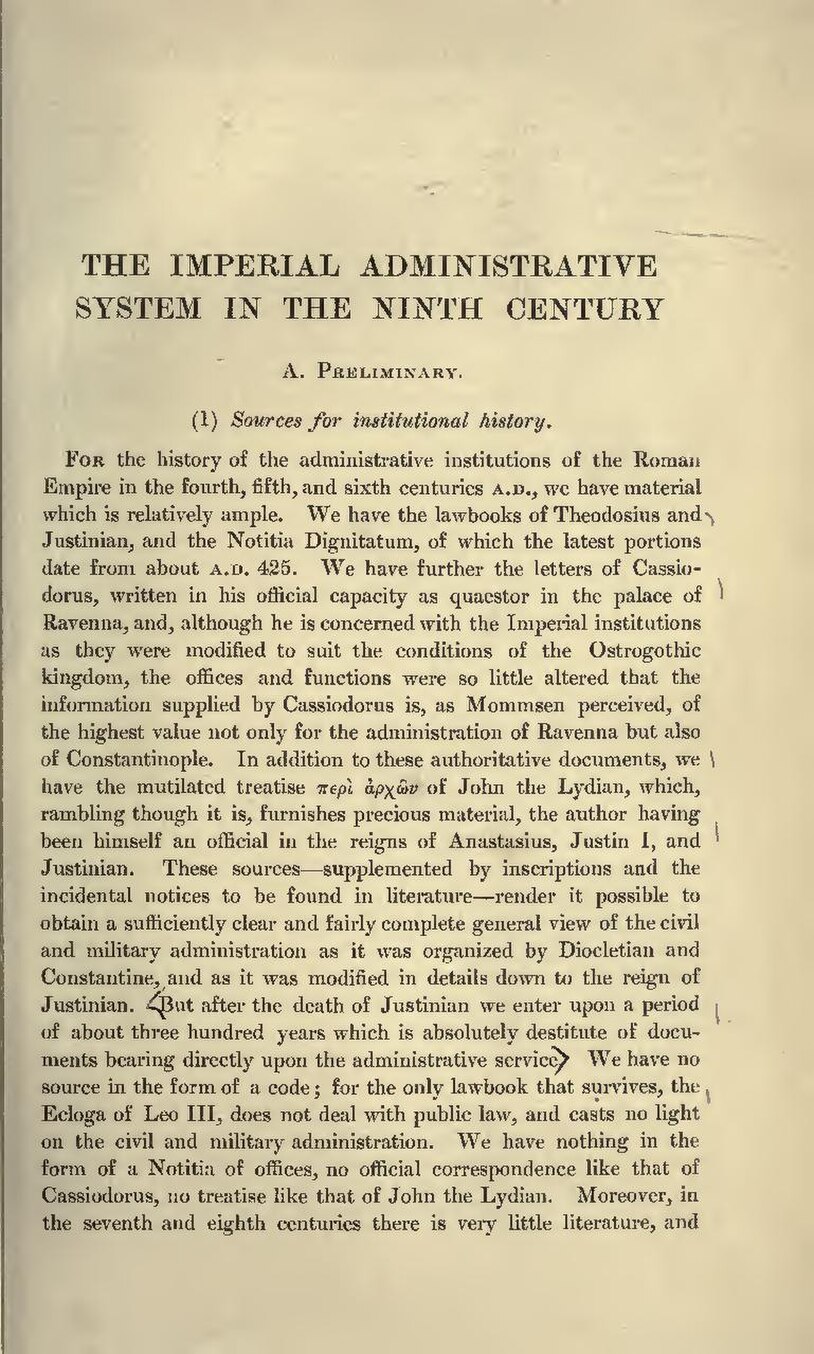THE IMPERIAL ADMINISTRATIVE SYSTEM IN THE NINTH CENTURY
A. Preliminary.
(1) Sources for institutional history.
For the history of the administrative institutions of the Roman Empire in the fourth, fifth, and sixth centuries A.D., we have material which is relatively ample. We have the lawbooks of Theodosius and Justinian, and the Notitia Dignitatum, of which the latest portions date from about A.D. 425. We have further the letters of Cassiodorus, written in his official capacity as quaestor in the palace of Ravenna, and, although he is concerned with the Imperial institutions as they were modified to suit the conditions of the Ostrogothic kingdom, the offices and functions were so little altered that the information supplied by Cassiodorus is, as Mommsen perceived, of the highest value not only for the administration of Ravenna but also of Constantinople. In addition to these authoritative documents, we have the mutilated treatise πϵρὶ ἀρχω̑ν of John of Lydian, which, rambling thought it is, furnishes precious material, the author having been himself an official in the reigns of Anastasius, Justin I, and Justinian. These sources—supplemented by inscriptions and the incidental notices to be found in literature—render it possible to obtain a sufficiently clear and fairly complete general view of the civil and military administration as it was organized by Diocletian and Constantine, and as it was modified in details down to the reign of Justinian. But after the death of Justinian we enter upon a period of about three hundred years which is absolutely destitute of documents bearing directly upon the administrative service. We have no source in the form of a code; for the only lawbook that survives, the Ecloga of Leo III, does not deal with public law, and casts no light on the civil and military administration. We have nothing in the form of a Notitia of offices, no official correspondence like that of Cassiodorus, no treatise like that of John of Lydian. Moreover, in the seventh and eighth centuries there is very little literature, and
